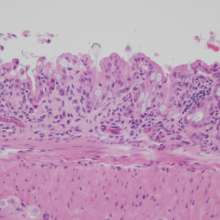These seasonal changes, which display opposing patterns in the northern and southern hemispheres, appear to influence human health. This may explain why certain infectious and chronic diseases show seasonal patterns.
The study
A new study, conducted by an international team and led by scientists at the University of Cambridge, UK, was reported in Nature Communications on genetics and medical research.
It shows that the activity of almost a quarter (5,136 of 22,822 genes tested) of our genes differs according to the seasons of the year: some are more active in summer, and others more active in winter.
Scientists have known for some time that various diseases including cardiovascular disease, autoimmune diseases such as type 1 diabetes, multiple sclerosis, and psychiatric disorders, as well as vitamin D metabolism, display seasonal variations.
But this is the first time a study shows how our immune system and gene expressions change with the seasons.
Researchers examined blood and adipose tissue (fat) samples from 16,000 people living in several countries in both the northern and the southern hemispheres. They studied cell types found in the blood, and measured the level of gene expressions - when a gene is active in a particular cell or tissue, usually involving the generation of proteins.
Results
 They find that the thousands of genes were expressed differently in blood and the adipose tissue depending on what season the samples were collected. Seasonal differences in the type of cells found in the blood were also identified.
They find that the thousands of genes were expressed differently in blood and the adipose tissue depending on what season the samples were collected. Seasonal differences in the type of cells found in the blood were also identified.
These seasonal differences were present across mixed populations in geographically and ethnically diverse locations, with the seasonal genes displaying opposing patterns in the northern and southern hemispheres.
However, the pattern of seasonal activity was not reflected as strongly in the Icelandic donors. Researchers speculate that this may be due to the near 24-hour daylight during summer and near 24-hour darkness in winter in Iceland.
They find, by studying the 147 genes involved in the immune system making it more reactive, that the pattern is pro-inflammatory in European winter, with increased levels of proteins linked with cardiovascular and autoimmune diseases detected in the blood.
On the other hand, people living in West Africa show a peak in seasonal cell types during the rainy season when malaria and other infectious disease are more prevalent.
Implications
The researchers propose that this study changes the way human immunity should be conceptualized. They suggest that if timed according to the seasons, vaccination programs, and the prevention and treatment of certain diseases may be more effective.




